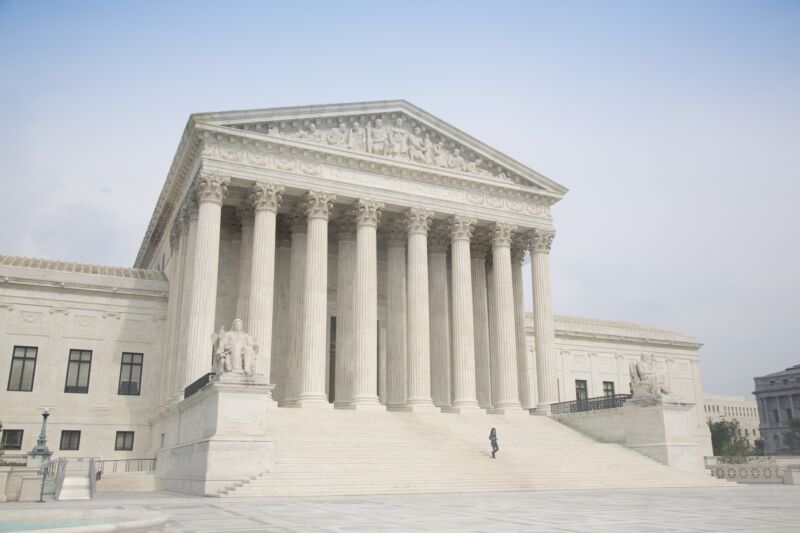
The US Supreme Court wants the Biden administration to weigh in on the Texas and Florida social media laws before justices decide whether to take up cases involving Big Tech industry lawsuits against the two states.
In a list of orders released this morning, the Supreme Court did not decide whether to hear the cases. Instead, the court asked the Department of Justice's Solicitor General to provide the agency's view.
"The Solicitor General is invited to file briefs in these cases expressing the views of the United States," the Supreme Court said.
The Florida and Texas laws were challenged by Big Tech groups NetChoice and the Computer & Communications & Industry Association (CCIA), which represent companies including Amazon, eBay, Facebook, Google, Twitter, and Yahoo.
The Florida law, which attempts to make it illegal for large social media sites like Facebook and Twitter to ban politicians, was blocked by a federal judge in a preliminary injunction. That injunction was upheld by the US Court of Appeals for the 11th Circuit, which said the law likely violates the First Amendment.
The Texas law, which prohibits social media companies from moderating content based on a user's "viewpoint," was also initially blocked by a federal judge. But that preliminary injunction was stayed by the US Court of Appeals for the 5th Circuit.
Circuit split
The split between the two circuits increased the likelihood that the Supreme Court will eventually rule on the First Amendment questions raised by the cases.
In May 2022, the Supreme Court voted 5-4 to vacate the 5th Circuit ruling that revived the Texas law. But the 5th Circuit appeals court, which had previously restored the social media law in a one-sentence order that did not explain the judges' reasoning, later sided with Texas again in a lengthier ruling.
"Today we reject the idea that corporations have a freewheeling First Amendment right to censor what people say," the 5th Circuit ruling said.
Florida urged the Supreme Court to rule, saying that its law "attempts to prevent social-media companies from abusing their enormous power to censor speech."
Noting the circuit split, Big Tech lobby groups said the Supreme Court should settle the matter.
"This case, involving a key Constitutional issue and split appellate court decisions, calls for Supreme Court oversight," CCIA President Matt Schruers said in December in a statement on the Texas case. "For 200 years courts have upheld the First Amendment to protect citizens and private businesses from government compelling speech—including forcing websites to publish and disseminate speech against their will."
Schruers further argued that the Texas "social media law would pave the way for an Internet overrun with bad actors and tie the hands of businesses trying to protect users."
reader comments
138